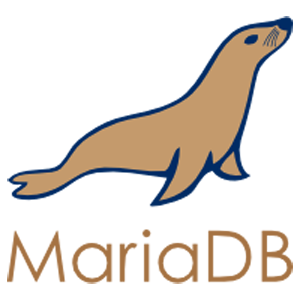 NEWS
NEWS
 NEWS
NEWS
 NEWS
NEWS
![]() News that is likely to make noise where Oracle lives has come to light as Google decides to go with MariaDB as a replacement for MySQL. Although MySQL is still the most popular database system with open source code (although essentially controlled by Oracle), its position has begun to gradually deteriorate.
News that is likely to make noise where Oracle lives has come to light as Google decides to go with MariaDB as a replacement for MySQL. Although MySQL is still the most popular database system with open source code (although essentially controlled by Oracle), its position has begun to gradually deteriorate.
In this recent development, Google has decided to switch from MySQL DBMS database management to its derivative MariaDB, a fork of MySQL from a project by Michael “Monty” Widenius and supported by a foundation for this purpose. It is a blow to Oracle, who now presides over the destiny of MySQL since 2006.
The Register reports that Jeremy Cole, senior systems engineer at Google, has confirmed to move Google database instances from MySQL 5.1 to MariaDB 10.0. It is thousands of servers that will migrate from MySQL to MariaDB. A transition facilitated by the fact that MariaDB is designed to replace 100 percent MySQL without change to the application code or architecture of databases.
“We’re running primarily on MySQL 5.1 which is a little outdated, and so we’re moving to MariaDB 10.0 at the moment,” Cole said.
Google later confirmed the plan in a statement to The Register: “Google’s MySQL team is in the process of moving internal users of MySQL at Google from MySQL 5.1 to MariaDB 10.0. Google’s MySQL team and the SkySQL MariaDB team are looking forward to working together to advance the reliability and feature set of MariaDB.”
A month ago Google had already dispatched one of its engineers to MariaDB Foundation, which according to its official website, “promotes, protects and develops the code, the community and MariaDB ecosystem.”
While the project involves thousands of servers, Google has used SkySQL services company specializing in infrastructure MariaDB, to accompany this vast migration.
Plenty of political reasons–finally open source wins
Google is making no comment about the reasons behind the move. Many industry analysts believe that it is Google’s reply to Oracle after both companies were engaged in a legal tussle over allegations that Google copied Java programming language into the successful Android operating system.
Google’s decision to move ahead with the MariaDB open source project will re-enforce MariaDB usage on reliability and feature set. It could be believed that Google interest in MariaDB will make the platform more exciting.
Michael Widenius hopes the new initiative will both keep core developers paid and grow the community for MariaDB as it begins to diverge even more from the functionality of Oracle’s MySQL.
In association with SkySQL, the company that provides commercial support for MariaDB and other MySQL variants. It also supports all versions of MySQL, develop MySQL and MariaDB tools, and fund further development of MariaDB. In addition, MariaDB project will remain ‘open source forever,’ while knowing that enterprise and community users of both the MySQL and MariaDB databases will benefit from best-in-breed products, services, and support.
What does all this mean for MariaDB?
Simple, with MariaDB, Google can influence the development away from the control of Oracle. At this point, by the way, Google is planning to upgrade MariaDB 10.0 so that it can accommodate the migration of its thousands of instances that run today on MySQL.
This work comes from the beginning of the year, according to Patrik Sallner, co-founder of SkySQL. “They are moving many of its applications previously working in MySQL to MariaDB. We are collaborating on the development of features that allow the migration.”
Since Oracle gained control of the MySQL database in 2010, The MySQL developer community had little access to contribute from outside Oracle into the MySQL codebase. Oracle is also charged with ignoring bugs, feedback, and communication from community. This lack of community made frustrated users to move away from MySQL to alternative solutions. Creator Monty Widenius forked the MariaDB, giving users a version of the MySQL database where many could contribute.
Since then, MariaDB’s users are on the rise. The database is the default database of the Red Hat Linux distribution, serving four to five million users. MariaDB ratio has also shifted to include the Wikipedia encyclopedia.
Ultimately, this technology choice allows Google to take its independence against Oracle that controls the fate of MySQL since 2006. Additionally, Google and the MariaDB team working together on an extension of the feature sets of MariaDB. If these features make it into the main MariaDB fork, it can only be good news for MySQL users who are considering moving to MariaDB.
Support our mission to keep content open and free by engaging with theCUBE community. Join theCUBE’s Alumni Trust Network, where technology leaders connect, share intelligence and create opportunities.
Founded by tech visionaries John Furrier and Dave Vellante, SiliconANGLE Media has built a dynamic ecosystem of industry-leading digital media brands that reach 15+ million elite tech professionals. Our new proprietary theCUBE AI Video Cloud is breaking ground in audience interaction, leveraging theCUBEai.com neural network to help technology companies make data-driven decisions and stay at the forefront of industry conversations.